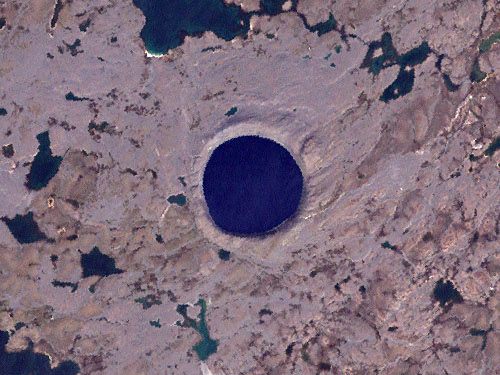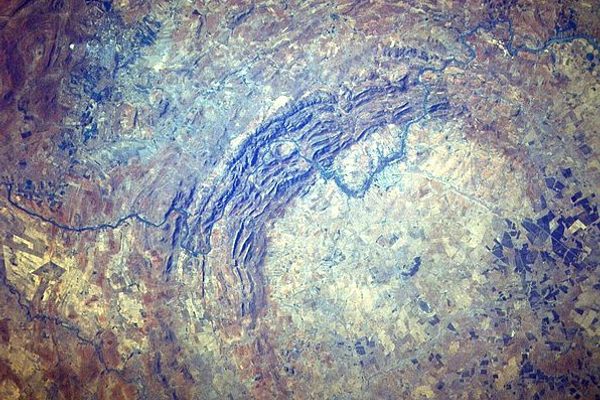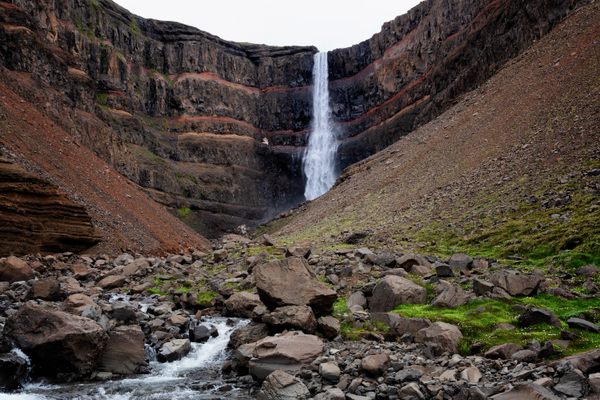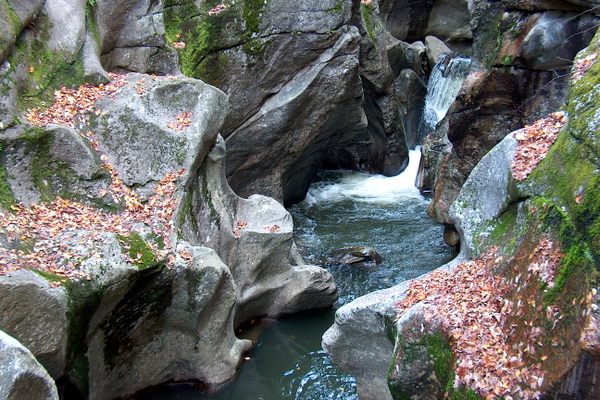About
The almost perfectly circular lake of the Ungava Peninsula of Quebec, Canada was formed by a meteorite plummeting from space and impacting the earth almost 1.4 million years ago. It is surrounded by a near-lunar landscape, and filled with pristine water that is covered with ice nine months out of the year.
The lake is made unique by its lack of inlets or outlets. Precipitation is the only source of water, and loss of water can only be the result of evaporation. The salinity level is less than 3 ppm, which is very low in comparison to the 500 ppm salinity level of the Great Lakes, and it's one of the clearest lakes in the world. A secchi disk (a tool to measure the transparency of water) can be seen 35 meters under the surface. At 1,300 feet deep, Lake Pingualuit is one of the deepest lakes in North America.
The circumference of the lake rises about 520 feet above the surrounding land, and marks the highest point of the region. The bulge was a result of the explosive impact of the meteorite that had fractured the rocks surrounding the area and increased their volume. It is assumed that the rims of the lake were higher before the ice ages, which carried away any sediments of the meteorite. Although it is a young crater by geological standards, it is speculated to have lived through two ice ages.
Related Tags
Know Before You Go
There is no road to the location.
Community Contributors
Published
June 13, 2013

















